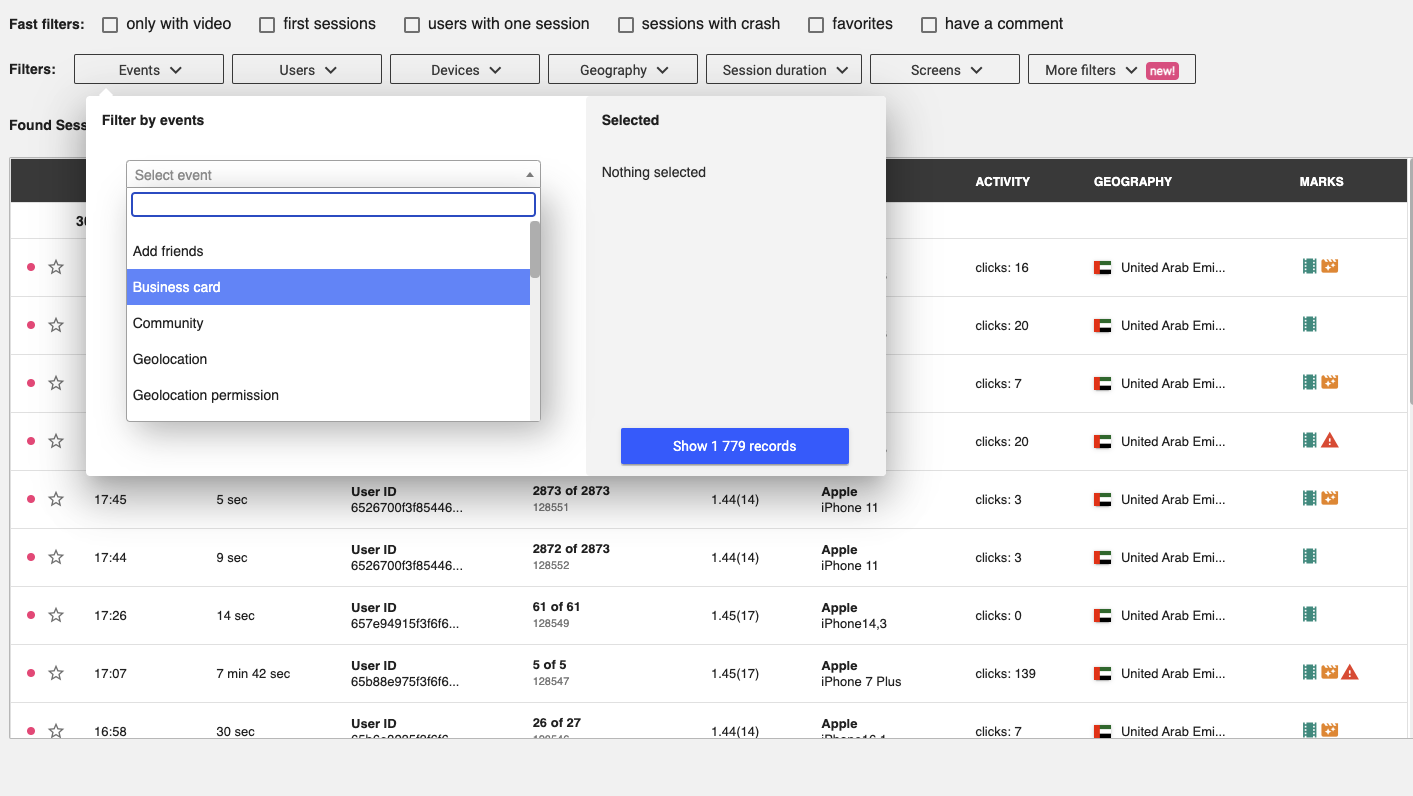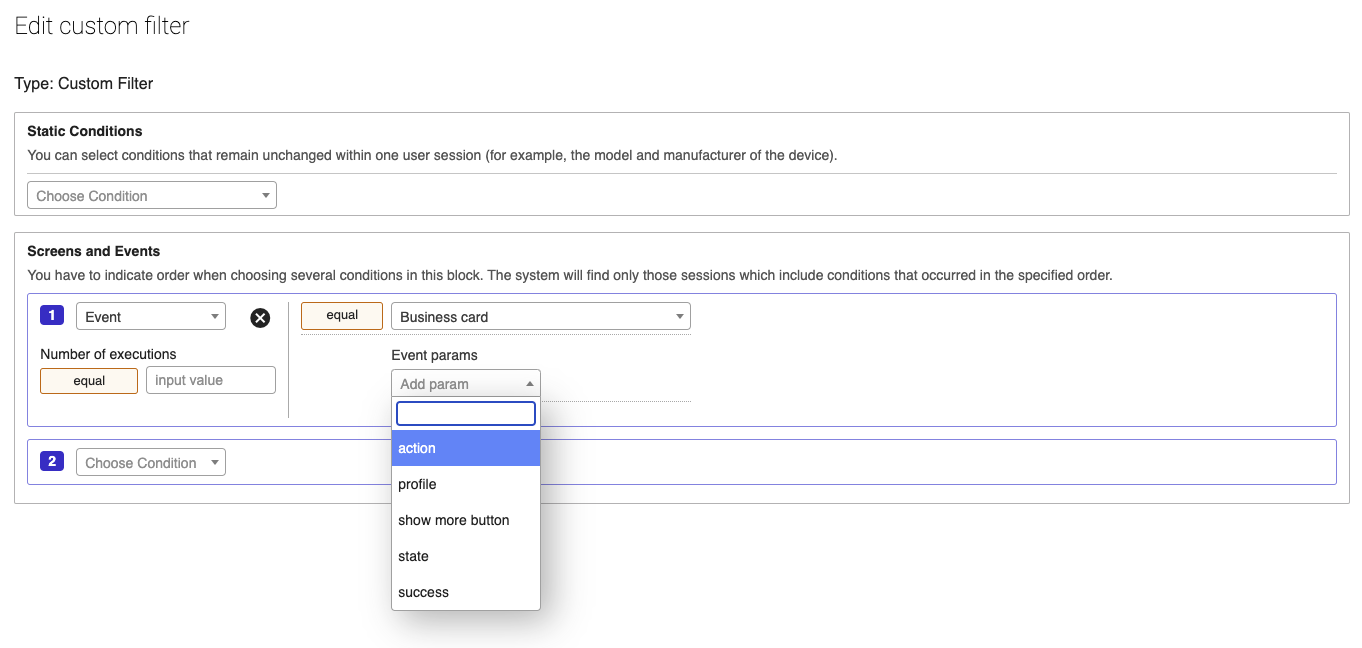Mobile app event tracking is a pivotal aspect of understanding and enhancing user engagement with your app. But what exactly is event tracking? Simply put, it's the process of recording user interactions within your app. These interactions, or 'events', can range from general usage patterns to specific actions like button clicks or form submissions. By tracking these events, developers and marketers gain valuable insights into how users engage with the app, which features are popular, and what areas might need improvement. This process is not just about collecting data; it's about translating this data into actionable insights that can drive app optimization and better user experiences. As we delve deeper into the world of mobile app event tracking, we'll explore its significance, implementation, and the tools that can help you in this journey, making it an essential read for anyone looking to elevate their app's performance in the digital marketplace.
Events in mobile apps are the key touchpoints where users interact with the application. These events can range from simple actions like app launches and screen views to more complex interactions like in-app purchases or social media shares. In-app events are critical as they give insights into user behavior, preferences, and engagement levels.
Types of In-App Events
- User Actions: These include taps, clicks, swipes, or any direct interaction with the app's interface.
- Transactions: Events related to purchases, subscriptions, or other financial transactions within the app.
- System Events: These are triggered by the app's system, such as app starts, updates, or crashes.
- Custom Events: Defined by the app developers to track specific actions that are unique to the app.

Importance of Tracking In-App Events
- Enhanced User Experience: By understanding how users interact with your app, you can make informed decisions to improve their experience.
- Personalization: Tracking events help in personalizing content and features for users based on their behavior.
- Performance Measurement: You can measure the success of features and campaigns within your app.
Challenges in Tracking Events
- Data Overload: Filtering relevant data from the vast amount of event data can be challenging.
- Identifying Key Events: Deciding which events are critical for your app’s success requires careful consideration
In summary, events in mobile and in-app events are crucial for understanding and improving the user experience. They help in personalizing content, measuring performance, and making data-driven decisions for app enhancements.
Selecting the right event tracker app is a crucial decision in mobile app event tracking. A suitable event tracker app not only captures vital data but also provides insights that can drive strategic decisions. When considering an event tracker for your mobile app event analysis, several key factors should guide your choice:
- Compatibility and Integration: Ensure the event tracker app integrates seamlessly with your mobile app's platform and other tools you use.
- Data Collection and Analysis Features: Look for an event tracker app that offers comprehensive data collection capabilities, including tracking of custom events, and robust data analysis tools.
- Real-Time Data Processing: For timely insights and reactions, choose an app that offers real-time data processing.
- User Interface and Ease of Use: A user-friendly interface simplifies data analysis and makes it easier to derive actionable insights.
- Security and Privacy Compliance: The app should adhere to data protection regulations, ensuring user data is handled securely and ethically.
- Customization and Scalability: The ideal event tracker should be customizable to suit your specific needs and scalable as your app grows.
- Support and Documentation: Comprehensive support and clear documentation are essential for troubleshooting and making the most of the event tracker app.
In conclusion, selecting an event tracker app should align with your broader mobile app event strategy. It's about finding a solution that efficiently captures and analyzes events, offering valuable insights to guide and refine your app's development journey.
Implementing mobile app tracking and effectively tracking events in your app involves a series of strategic steps:
- Define Key Events: Identify the specific actions or events within your app that are critical to understanding user behavior. These could include app launches, button clicks, or in-app purchases.
- Choose an Event Tracking Tool: Select a tool that suits your app's needs and integrates well with its framework. Consider features, ease of use, and data analysis capabilities.
- Integrate the Tracking Code: Implement the tracking code into your app. This usually involves adding a few lines of code to your app’s source code.
- Set Up Event Tags: Configure the events you want to track. This could be done through the event tracking tool’s dashboard.
- Test the Tracking Setup: Before going live, test the tracking to ensure data is being captured accurately and consistently.
- Analyze and Interpret Data: Regularly review the data collected to gain insights into user behavior and app performance.
- Iterate and Optimize: Use the insights gained from tracking events to make informed decisions about app updates and improvements.
By following these steps, you can effectively implement event tracking in your mobile app, providing valuable insights into user behavior and app performance.
Analyzing data from mobile app events involves a meticulous approach to understanding user interactions. Tools like UserX are instrumental in this process, offering features such as event tracking, session recordings, and heatmaps. These features enable a deeper dive into user behavior.
Try UserX for free - book a demo now!
- Utilize Event Tracking: Tools like UserX allow you to monitor specific actions within your app. This data is crucial for understanding how users interact with various features.
- Session Recordings: Session recordings provide a visual understanding of user interactions. Watching how users navigate your app can reveal usability issues and areas for improvement.
- Heatmaps: Heatmaps offer a visual representation of where users are clicking, tapping, and scrolling. This information is invaluable for optimizing user interface design.
- Data Interpretation: Analyze the collected data to identify patterns and trends. Look for common paths users take, features they use most, and where they encounter issues.
- Make Data-Driven Decisions: Use these insights to inform your app development strategy. Understanding what users like and dislike helps prioritize future updates and enhancements.
By leveraging tools like UserX for event tracking and data analysis, you can gain a comprehensive understanding of user behavior, leading to informed decisions that enhance the overall user experience of your mobile app.


The implementation of event tracking in mobile apps is not just a technical endeavor; it holds significant importance for businesses. By accurately tracking mobile app events and analyzing this data, businesses gain crucial insights into user behavior and preferences. This understanding allows for targeted enhancements in app design and functionality, directly impacting user satisfaction and engagement. In essence, effective tracking and analysis of app events can be a game-changer in optimizing app performance and driving business success.
What is Mobile App Event Tracking?
Mobile app event tracking is the process of monitoring and analyzing specific actions users take within an app, like clicks, views, or interactions.
Why is Event Tracking Important for Mobile Apps?
It helps businesses understand user behavior, identify app strengths and weaknesses, and make data-driven decisions to improve user experience and app performance.
What Are Common Types of Events Tracked in Mobile Apps?
Common events include app launches, user registrations, in-app purchases, button clicks, and screen navigations.
How Can Event Tracking Improve a Mobile App?
By analyzing event data, developers can optimize app features, enhance user interfaces, and personalize user experiences.
What Tools Are Used for Event Tracking in Apps?
Tools like UserX offer features such as event tracking, session recordings, and heatmaps to provide detailed insights into user interactions.
Can Event Tracking Impact App Development Decisions?
Yes, insights from event tracking can guide feature development, bug fixes, and overall app enhancement strategies.
Is Event Tracking Useful for Marketing Strategies?
Absolutely, it provides valuable data that can inform targeted marketing campaigns, promotional strategies, and user engagement tactics.
Mobile app event tracking is the process of monitoring and analyzing specific actions users take within an app, like clicks, views, or interactions.
Why is Event Tracking Important for Mobile Apps?
It helps businesses understand user behavior, identify app strengths and weaknesses, and make data-driven decisions to improve user experience and app performance.
What Are Common Types of Events Tracked in Mobile Apps?
Common events include app launches, user registrations, in-app purchases, button clicks, and screen navigations.
How Can Event Tracking Improve a Mobile App?
By analyzing event data, developers can optimize app features, enhance user interfaces, and personalize user experiences.
What Tools Are Used for Event Tracking in Apps?
Tools like UserX offer features such as event tracking, session recordings, and heatmaps to provide detailed insights into user interactions.
Can Event Tracking Impact App Development Decisions?
Yes, insights from event tracking can guide feature development, bug fixes, and overall app enhancement strategies.
Is Event Tracking Useful for Marketing Strategies?
Absolutely, it provides valuable data that can inform targeted marketing campaigns, promotional strategies, and user engagement tactics.


